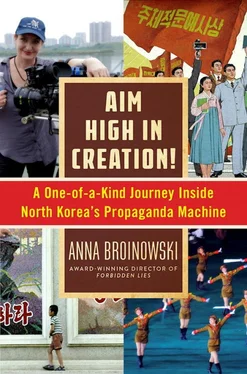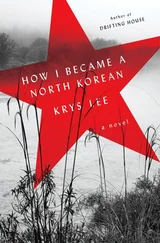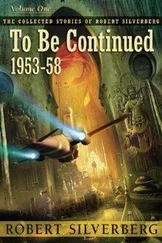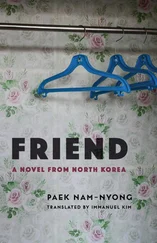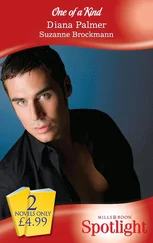I would have had a breakdown if my life hadn’t been so absurd. It was as if the capitalist universe could sense I’d defected and was putting me through its version of a North Korean boot camp to hook me back in. In one of those ironic real-life twists that happen when you’re making a documentary, while I was battling my ex and writing my Kim Jong Il propaganda script, I was also being courted by General Electric—who wanted some propaganda of their own. The marketing suits in New York needed a local filmmaker to produce a video about GE’s new Gorgon gas mine on Western Australia’s Barrow Island. The money was excellent and the brief was simple: create a feel-good documentary about the mine. I normally would have run a mile from such a gig: Barrow was home to the rare osprey and the even-rarer bettong, a cute little burrowing kangaroo. Now, their pristine breeding grounds were about to be ripped apart by a massive gas plant, extracting three hundred terajoules of gas per day and producing fifteen million tonnes a year.
The clever folk on the GE PR team had done their homework: they knew gas drilling was increasingly on the nose in Australia, thanks to the horror stories coming out of Queensland. Rather than assuage the public’s fears with big-budget ads, their strategy was to commission homespun, documentary-style testimonies: the kind of authentic branding that would make Gorgon seem unthreatening and folksy, in a market glutted by spin. The construction blueprint for Gorgon indicated it was going to wipe out half the island, but the opportunity to contrast GE’s propaganda with Kim Jong Il’s socialist version was too delicious to pass up. So I Skyped New York and pitched for the project.
Tom, Mark, and Brigita listened from their elegant boardroom, impressed. I would show the miners of Gorgon wandering around the island on their days off, enjoying the fragile delights of ocean, beach, and bush. Then I would crane up over their contented faces, revealing the futuristic yet harmoniously integrated mine nestled among the trees. Reassuring vox pops from Gorgon’s down-to-earth engineers would take us out, explaining how General Electric had found a way for mining to coexist seamlessly with nature. Cue the GE logline over the crystal-clear waters of Barrow—one of the most unspoilt (for the purposes of this video, anyway) islands in the southern hemisphere— GE creates things that make the world work better . Ramp up relaxing music, fade to white.
My pitch got me to the shortlist. When I disclosed that I was an environmentalist and couldn’t possibly make the film unless I cared passionately about Barrow’s natural beauty, I could see Brad mentally writing out the cheque. This was exactly the kind of authenticity money couldn’t buy. I’d struck my Faustian bargain: the gig was in the bag. I signed off with a final request, and the PR team were all ears: “I’m about to go to North Korea to make a film about Kim Jong Il’s propaganda techniques,” I said. “Would you mind if I included my work for General Electric in the final cut?” There was a nervous cough in Manhattan, on the other side of the world. Brigita said she’d Skype me back. The gig went to some music-video makers in Melbourne.
“This Would Never Happen in Pyongyang,” I thought with a grin, pleased to have lost a pitch for the first time in my life. I went to celebrate in the local pub and discovered that the beautiful old art-deco bar had been ripped out and replaced by the flat-screen TVs of developers hungry for the corporate dollar. The cacophony of rugby games and SUV commercials was a neurological assault—but that didn’t matter: the patrons were all wearing headphones and texting people who weren’t there. “This Would Never Happen in Pyongyang,” I sighed into my bourbon, wondering what my North Korean friends would make of it all. Would they look at this homogenised, increasingly soulless city of mine and conclude that the system I live in is sick? Would they see it as proof that capitalism creates a moral vacuum, producing people so wedded to consumption they’ve forgotten how to connect? Once my North Korean friends had gotten over their Western-gadget envy, would they still want to defect?
Perhaps not, I decided, as I escaped to cosmopolitan Potts Point for dinner. My closest friend and I were meeting the ABC producer who had given me Kim’s manifesto for my fortieth birthday. I couldn’t wait to see her: she was the only person I knew who had been to North Korea. She was politically more conservative than me, but even if she hadn’t drunk the Kool-Aid, she was morally obliged to humour me—it was partly thanks to her, after all, that my life was stuck on this crazy trajectory now. We sat down to delicate trays of tapas and toasted each other with Margaret River champagne. Then I began to share my rose-tinted views on North Korea. And everything turned to shit.
The producer was disgusted I could dare defend anything about the place. Her work with a source deep inside the gulags had left no room for positivity. The cruelty she’d been told about was horrific, and North Korea was beyond evil. Case closed. My friend gracefully tried to change the subject, but I rankled. Sure, the regime was brutal. But did that justify writing off the entire country? Didn’t slamming North Korea’s prisons smack of hypocrisy, when Australia locked up refugee children on Manus Island and Nauru, and the USA ran torture chambers in Guantanamo, imprisoned terror suspects without trial, and had the highest incarceration rate in the world? With one-quarter of the globe’s prisoners on US soil, and one in three African American men destined for jail at some point in their lives, was North Korea the only gulag state? And what about America’s culture of violence, where you were more likely to be shot than killed in a car crash, and violence in PG-13 movies had tripled in the past twenty years? How could anyone condone the US and its allies attacking North Korea, when America had invaded fifty sovereign nations since World War II, and North Korea was yet to invade one?
The producer shot me down with one word: freedom. We had choice; they did not. “Yeah, choice to consume crap and be brainwashed by ads and destroy the planet,” I kvetched. But the producer wasn’t buying it. And nor was my friend. It’s always a mistake to play the quid pro quo card on North Korea: you can’t win. I slunk back into the night to find a hundred-dollar parking fine on my windshield and a junkie slumped in vomit under the fender. “This Would Never Happen in Pyongyang,” I grumbled, as I shook the junkie awake.
One block down, someone was shattering the pre-dawn calm with a leaf blower. I remembered the old woman in Pyongyang, silently sweeping the sidewalk with her ancient stick broom.
I couldn’t wait to go back.
THE EXPLODING SOUND RECORDIST
THE RED HOTEL IN BEIJING IS a fleapit of broken antiques and grimy wallpaper. I’m not bothered: our budget is going on the screen. I have a state-of-the-art Sony F3 HD camera with a PL mount, a 5D DSLR for stills, and three beautiful ground-glass Zeiss lenses. In the cubicle next door, my cinematographer Nicola Daley is programming the hard drives. In ten minutes, we’ll meet Sam, our sound recordist, to pick up the lights. We’ve been planning for weeks now. Our visas are waiting at the North Korean embassy, our batteries are charged, and we have tools for every conceivable emergency. This time tomorrow, we’ll be on Air Koryo, bound for ten days in Pyongyang.
I sort through my stuff, wondering if I should risk taking in a copy of the Inner West Argus . The community newspaper has an article about the Sydney Park gas mine on the front page. It also has full-page ads for Dan Murphy’s vodka and brothel listings with colourful shots of naked Asian babes and pneumatic blondes called Tiffany and Cheyenne. I’m sure this makes the paper “offensive foreign literature.” But I slip it into my suitcase anyway—under my battered copy of Kim Jong Il’s manifesto. I’ve hidden the film files on my laptop in folders with innocuous labels, like “Healthy Lunch Boxes” and “Holiday Gymnastics.” I’ve also printed a sanitised blurb about our project, with the Koryo Tours logo stamped on top, in case any North Korean guard wants to know what we’re doing. The royal wedding stamp of Wills and Kate I’m smuggling in for Eun is tucked in with the Band-Aids in my first-aid box.
Читать дальше
